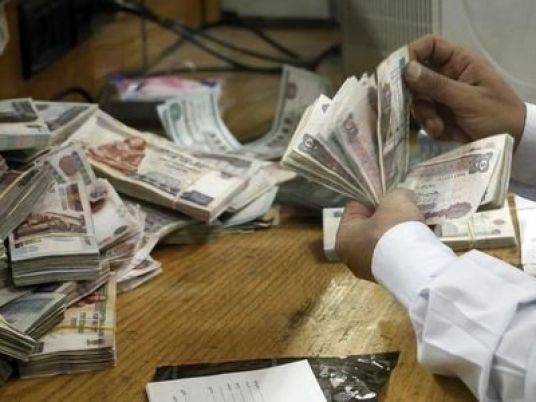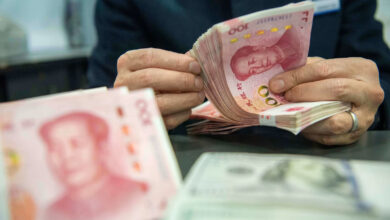
The two-day visit of the Russian president Vladimir Putin to Egypt resulted in many pivotal outcomes, including dropping the use of the American dollar in bilateral trade between Egypt and Russia to be exchanged by the countries' national currencies. The proposal, which Putin said had been actively discussed, sparked a wave of controversy among Egypt’s economy experts and businessmen, as they debated over whether the move would help or harm Egypt.
“It’s a positive, strategic decision. It will be a nail in the coffin of the US dollar, which has been dominating the trade exchanges for a long time,” said Magdy Toulba an economic expert.
He argued that the decision would raise Egypt’s income from the ruble, especially since the country received at least three million Russian tourists in 2014.
Moreover, Toulba said the decision will facilitate funding the purchases without further restrictions of the high dollar exchange rates.
Echoing Toulba, Chairman of the Tourism Association Ahmed Balbaa said that however with applying the barter system the foreign reserves in Egypt will decrease, but at the same time the foreign expenses will be reduced which will lower the risk of currency fluctuations thus will reduce loses of both tourism sector and export.
“The decrease of Russian ruble against the US dollar has led to a decline in Russian tourist flow to Egypt by 50 percent,” he said.
In a meeting by Egypt businessmen association the Chairman of Export Association Mustafa Nagary praised the drop of the US dollar, adding that central banks of both Egypt and Russian will study the activation of a barter system and currency exchange between both sides, especially as Russia is one of the largest countries to receive Egypt exports.
According to State Information Service (SIS), Egyptian investments in Russia reached $7 million by end 2012, most of which are concentrated in the areas of lumber exports and realties.
Others greeted the decision to drop the US dollar with concern. Speaking to Al-Masry Al-Youm, the General Secretary of the Egyptian-European partnership unit, Gamal Bayoumy, warned of the international consequences expected to result from the decision.
Bayoumy wondered about the expected benefits from the deal in wake of decreasing ruble rates against the dollar.
Bayoumy pointed out that Russia is not as it was in the era of the Soviet Union, and Egypt's engagement with the World Trade Organization may push many member countries to complain against abandoning the dollar in trade exchanges.
“We have commitments with the International Monetary Fund IMF and the World Bank to prevent any barter systems,” Bayoumy said.
According to economic newspaper Al-Borsa, Christopher Javis, the IMF chief of mission in Egypt, said that this decision would not be fruitful assuming that the currency used in any country's trade exchange will not have an impact on the macro economics, so Egypt shall take another procedures instead.
Meanwhile financial analyst Mohsen Adel said that the only Russian company listed on the stock market is VimpelCom, though investment funds owning Russian capital is very modest and that the main contributions are from individual investors.
Adel emphasized using the local currencies could be common in trade transactions or tourism, but it is completely different in money market as foreign investors have two choices: either convert their currencies to the dollar or to the local currency and transaction would be by the Egyptian investors.
While Fakhry al-Fiky, former leader of the IMF welcomed the barter system, especially the trade balance is in favor of the Russians, and therefore it’s preferable to use the rubles rather than the Egyptian pound.
In 2012, the balance of trade between the two countries reached $2.87 million in 2012, in Russia's favor. The exchange between the two countries amounted to $3.5 million, which was around 3.5 percent of Egypt's total foreign trade.
From the Russian point of view, the decision is beneficial. “Egypt is a long-time and trusted partner of Russia and the relationship between both countries witnessed speedy developments,” Putin said.
Putin believes that it is going to open new trade and investment cooperation opportunities between both countries and lowers its dependency on the current trends in the world markets.
He pointed that this issue has previously proved that its positive, especially Russia has already dropped the dollar and uses national currencies in trade exchanges with a number of the Commonwealth of Independent States and China.
In a similar move in January, the Central Bank of Iran said that the country is going to kill any mutual settlements with foreign countries in US dollars.




